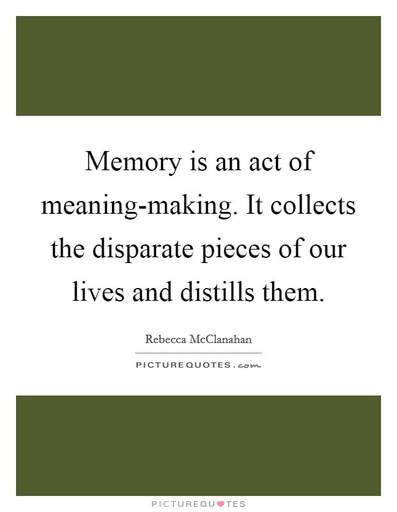|
"I texted her yesterday morning and still haven't heard from her. She must be angry about something. What did I do? I mean, I had coffee with Tina without inviting her, but she was working; she wouldn't have been able to join us. Maybe we should have scheduled it for a time when she could have, after work or on the weekend maybe..." I'm sure a similar scenario has played out in your own head on more than one occasion. This week. Let's face it, we are meaning-making machines. We like to understand our world, to make sense of it, so our minds fill in the blanks. That's absolutely natural, but there are different types of people in the world. There are those who write out a number of scenarios in their heads and others who pick one and believe it to be gospel. I, uh, struggle with the latter. At the same time I envy them. It must be very comforting to live in a black and white world, where "because I believe it" is reason enough to look no further. And then they keep seeing information that confirms their bias. Because they're on Facebook. But that's a whole nother rant to get into. It's easy to see, then, how beliefs get formed and reinforced. Imagine a young child realising for the first time that she was unplanned. Imagine if she heard the words, "You were an accident." You are an accident. Even when it's followed up with, "Best mistake we ever made," it'll still leave a mark. Every time she vies for her father's attention and doesn't get it, she will feel less than. If she brings home a bad mark, she will see herself as a disappointment. Any relationship that ends will remind her that there's something inherently wrong with her. Imagine how she might compensate for those perceived flaws. Do you think she would be a people pleaser? And her needs wouldn't just come last, right? They wouldn't be acknowledged at all. She might be promiscuous as validation of her value. At least somebody wants her. Let's take it a step further. What if her promiscuity leads to an unwanted child of her own? It's not difficult to see that pattern perpetuating through the generations. It's crazy to think that one event which, when seen through the eyes of an adult, is insignificant can impact a life so greatly. Her parents wouldn't probably even have given it another thought. But to the developing mind of a child, it was everything. It was her identity. It's obvious to us that there was no intent to injure on her parents' part. It's just life. When I suggest that we're all broken, it's because, well, we're all broken. In some way. And our parents/guardians/caretakers are the single most influential unit in our young lives. I remember from a young age my mum getting really upset watching a TV show or hearing a story involving psychotherapy. "Sure, blame the mother!" But yeah, it's that parenting unit that teaches us who and what we are, where and whether we belong, our values and our value. Kids aren't just small adults. They don't have an adult's capacity for critical thinking. And they are ridiculously literal. I mean, seriously, shouldn't they come with at least a modicum of understanding of nuance? Or a manual? I want to take a minute to circle back to those black and white thinkers. Do you notice the similarity? Literal, no nuances, limited critical thinking? And temper tantrums, can't forget about those. See, what happens is part of our personality gets stunted when we suffer an emotional trauma. For all intents and purposes, we stall emotionally in that moment. When faced with a similar trigger, then, we react in the same manner as a child. Strong emotions like rage, embarrassment, and panic show us what those triggers are and where work needs to be done. Rage was my go to, y'know, before I got all woke 'n' stuff. My friends still laugh about it, but it was horrible. Did you know that perfectionists really shouldn't take up golf? I raged against, hated, and berated myself for bad shots. There was one particular incident at Valley Ridge which stands out. I could not get out of a fairway bunker. One attempt. Two. Three. Four... Then a bunch more f-words including flailing against the offending sand. My playing partners were vibrating with laughter and avoiding eye contact. Funny, right? No. It was my depression bumping up against my I'm not good enough. My I suck. My What the hell is wrong with you?! So, when my family laughs about my nephew Devin throwing his first golf club at age five and proclaims, "He's one of us!" I worry that they're right. We are meaning-making machines. We began to heal when we are able to look at the experiences of our past with the eyes of today. We can journey backwards and see our parents' intent and love. We can rewrite our story from the perspective of a grown up. We can forgive or, more likely, understand that there's nothing to forgive. The most important thing we can do is heal ourselves but remember how our traumas manifested, so we can recognise them in our loved ones and help shatter the pattern. What do you want your legacy to be? AuthorBased out of Calgary, Canada, Christie Morden is a Mental Health Coach specializing in midlife transformation. When depression nearly took her life at age 45, she finally decided she was done living with the pain of her past. She believes hypnotherapy was the missing puzzle piece and built her practice around it. She branded her style of coaching Quicknotherapy, a signature blend of traditional client-centered coaching and hypnotherapy techniques which have been found to be both more effective and more efficient than traditional psychotherapies. Christie's clients can experience dramatic results in a single session, and many issues resolve within three.
0 Comments
|
Christie MordenMental Health Coach Archives
March 2022
|

